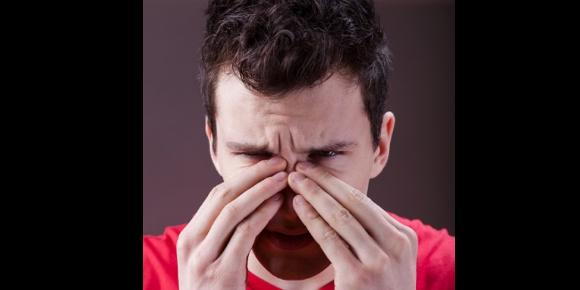Sinus Infections
posted: Mar. 05, 2019.

Sinus infections are painful. You have sinuses around your eyes and behind your nose, any of which can harbor an infection. The first sign you may have a sinus infection is a dull, throbbing pain in the area of your sinuses. You may also experience:
- Pain in your upper jaws or teeth, eyes, nose or forehead
- A yellowish-green discharge when you blow your nose
- Congestion caused from swelling in your sinuses
- Severe headaches and earaches
- A sore throat and persistent cough
Sinus infections are most often viral, but they can also be bacterial or fungal. Allergies, tooth infections, and nasal polyps can also cause a sinus infection.
You can take some steps to avoid painful sinus infections. It’s important to:
- Use a humidifier, especially in your bedroom; this keeps the air in your house moist, which soothes your sinuses. Dry air irritates your nasal passages and can cause increased mucus production, resulting in congestion and a sinus infection.
- Try an over-the-counter nasal irrigation kit; these kits, when used daily, can keep your nasal passages clean and free of mucus so bacteria won’t have a place to breed, causing a sinus infection. The saline solution also works to soothe your nasal passages.
- Wash your hands often, and don’t touch your face, nose, mouth or eyes; this helps to prevent spreading germs and bacteria to other places of your body.
- Stop smoking, because it increases mucus production and irritates your sinuses, providing an environment perfect for bacteria.
- Avoid alcohol, because alcohol can make your sinuses irritated and swollen, resulting in a sinus infection.
- Eat healthy and take your vitamins, especially vitamin C, and get sufficient exercise to keep your immune system at its peak so you can fight off a sinus infection.
If you get a sinus infection, you can try over-the-counter pain relievers, antihistamines, and decongestants. If your sinus infection lingers for more than a week or two, or if you have a fever along with the sinus infection, it’s time to see your doctor, preferably an Ear, Nose, and Throat specialist. Don’t delay; get some help for your sinus infection.
